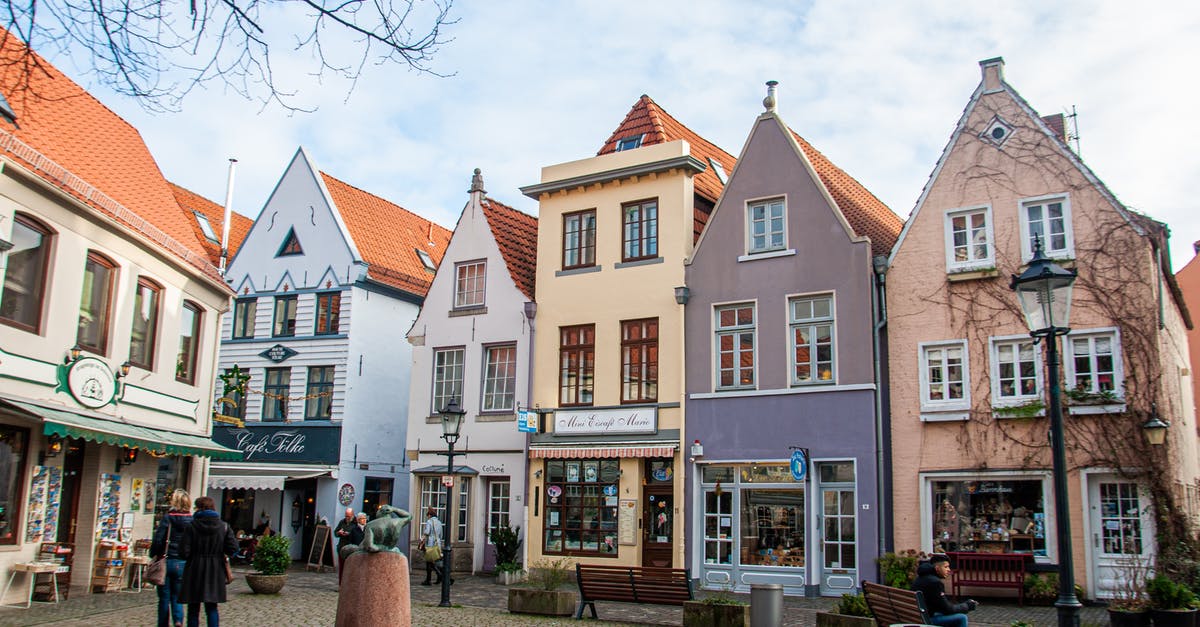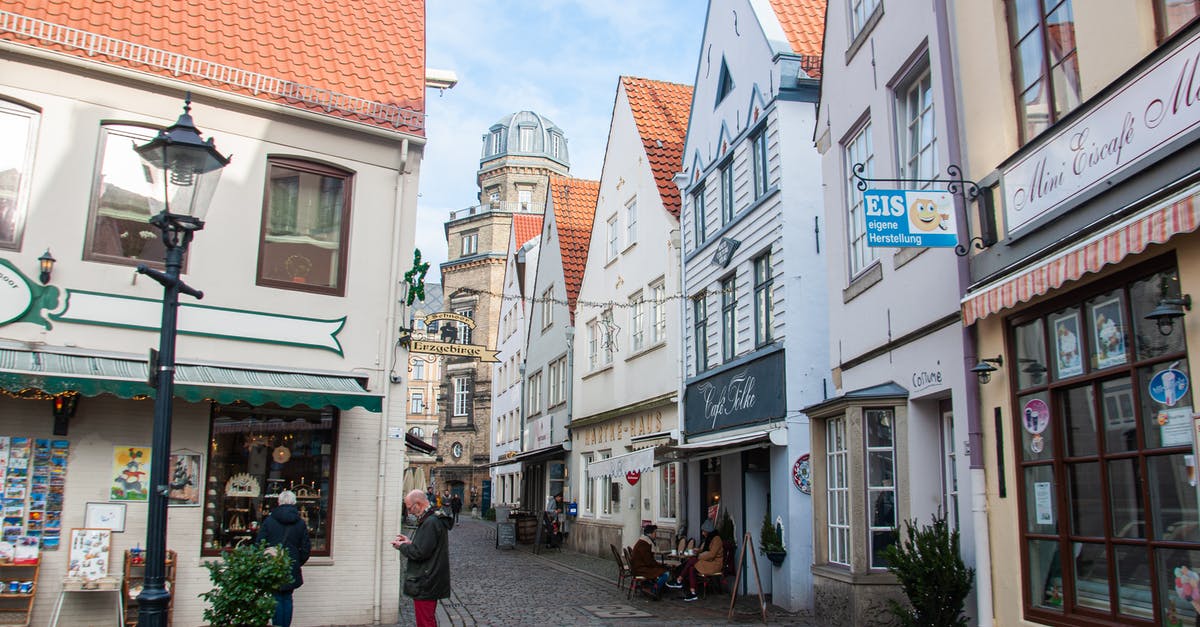Hitchhiking in Europe under the age of 18

We are two friends who are planning on hitchhiking trip in middle-southern Europe. Unfortunately, in the summer of 2017, we both will be 17 (he was born in October and I was born in December).
Therefore, we don't know if we can hitchhike alone. We want to go to the Czech Republic, Slovakia, Hungary, Austria, Slovenia, Croatia and Germany.
All those countries are in Schengen which means there shouldn't be any passport controls on the borders. Still, could the police stop us and send us back home if they find out we are not 18? It will only be a few months before we both turn 18. Should we carry with us our parents' written permission?
Our parents know we are wise and traveling without adult supervision won't be a challenge for us but they're afraid the most is what if police asks us to show our documents? Can they send us back home if they find out we're not 18 and make a case in a court that our parents are irresponsible?
I would also like to ask, if you, the people who are reading this question, would let your 17 year old son hitchhike in Europe with his also 17 year old male friend.
We are both from Poland and only have Polish citizenship. And we are both guys.
Best Answer
I did a bit of unaccompanied traveling in the EU when I was your age. (But I've never hitchhiked.)
Legal aspects
As EU/Schengen citizens both of you are entitled to travel quite freely in all these countries. Even if there would happen to be some border controls it would not be a problem. Of course, it's wise to bring your passports so that you can easily prove that you are EU nationals should anything occur.
Being 17 is no legal issue. There is no law that can prevent 17 year old EU nationals from traveling around Europe.
Regarding approval letters from your parents, yes, do bring that. As the answers of @BjörnLarsson and @JirkaHanika now show, it may actually be required in at least one of the countries you mention. And in those where it isn't, it would still be something useful to refer to should police, etc. ask you anything. Here's a very much related answer from a few weeks back.
Moving on, you ask:
Our parents know we are wise and traveling without adult supervision won't be a challenge for us but they're afraid the most is what if police asks us to show our documents? Can they send us back home if they find out we're not 18 and make a case in a court that our parents are irresponsible?
No, this won't be a problem. As long as you behave well and don't break any laws, you'll be fine. There's absolutely no way police can legally arrest or deport you merely for being 17 year olds from another EU country. In fact, the EU encourages youth to travel and explore the continent through programs such as Interrail and the Youth Networks. However, should the police ask you anything, it would be useful to have the letters I referred to earlier, as well as the contact information and personal details of your parents.
Safety aspects
I would also like to ask, if you, the people who are reading this question, would let your 17 year old son hitchhike in Europe with his also 17 year old male friend.
If I had a 17 year old son I would probably offer to pay for an Interrail pass and/or flight and/or bus tickets rather than have him hitchhiking. I'm not necessarily telling you not to hitchhike, I'm just saying what I personally would do. And I would probably call him every other day to check how he was doing, and tell him to be careful and use common sense, guard his valuables, etc.
So, again, I'm not necessarily telling you not to hitchhike. However, do think this over carefully. There are risks with hitchhiking. Consider if buses, trains and/or flights may also be options for you. As always, it's better to be safe than sorry.
However, if you do choose to hitchhike:
Since you are nearly (or completely) physically fully grown males, and since there are two of you, you are at a significantly lower risk than, for example, a girl traveling alone. Still, while hitchhiking one should always be careful. Guard your possessions carefully, exercise caution when interacting with strangers etc. Hitchhiking is, in general, more dangerous than other forms of transportation. So be careful and use common sense to stay away from potentially risky situations. And stay together, two people are always safer than one.
Here are some great safety tips for hitchhiking that someone brought to my attention.
I'd advise you to get a cheap phone plan and maintain contact with your parents. A smartphone with Google Translate wouldn't hurt either.
While hitchhiking, I suggest you stay sober the entire time. Underage drinking can not only get you in trouble with the law, it can also rob you of your sound judgement and thus put you in unnecessary dangerous situations. And also, of course, stay away from drivers who appear not to be sober.
Another issue is accomodation. Not all hotels/guesthouses will allow minors staying alone. Again, I refer you to the related answer for details.
Pictures about "Hitchhiking in Europe under the age of 18"



Is hitchhiking illegal in Europe?
In all countries in Europe, it is legal to hitchhike and in some places even encouraged.Is it illegal to hitchhike in Germany?
Hitchhiking in general is legal in Germany. It is only forbidden to hitchhike on the Autobahn itself, meaning you standing on the autobahn or its emergency lane. It is also forbidden to walk on a Kraftfahrstra\xdfe.Is it illegal to hitch hike in the UK?
For the first time ever, hitchhiking and carsharing have been banned in the UK. Under the latest government regulations for dealing with the coronavirus outbreak, travellers are warned: \u201cYou can only travel in a private vehicle alone, or with members of your household.\u201dIs hitchhiking still common?
It's still a popular and common way many people worldwide get around, but it evokes a lot of fears and concerns, especially among Westerners. Today, Matt Karsten from Expert Vagabond shares his experience hitchhiking around the United States and advice about how you can safely do it too!Hitchhiking is too dangerous! 〢1 year traveling Europe〢
More answers regarding hitchhiking in Europe under the age of 18
Answer 2
You need a written statement from your guardian telling that you are allowed to travel without supervision in Croatia.
I was a leader for the Swedish Explorer Belt in Croatia this year (2016). We took about 40 youth in the age of 16-19 to Croatia where they got to hike in pairs for ten days.
A source for the details regarding this has now been included in the answer of @JirkaHanika.
We were required, due to Croatian laws, to collect a form from the guardians of the participants younger than 18 years stating that they were allowed to travel in Croatia without direct supervision. The form also told whomever reading it about the event and the circumstances of our journey in Croatia.
I do not know if this is necessary for any other country. Neither do I know which law required the form. We come to know about the requirement from dialogs with the locals and it was subsequently confirmed by the local police.
Answer 3
You generally need no special paperwork. You do need to appear mature, clean, have travel means and plans (e.g., an ID, a small bit of provable money, have some rough plans around duration of stay in each country and around accommodation) and basic knowledge of, and respect for, local laws.
Actually I need to correct myself here. Croatia has local laws that should suggest prior paperwork (letter of consent of both parents) to you:
[The] police officer shall check whether [you are] travelling against the will of [your] legal guardian, as well as other relevant circumstances. ... Apart from a valid travel document, Croatian legislation does not prescribe any other documents that might be used for state border crossing [such as a letter of parental consent]. However, it is advisable to obtain [this] prior to the journey, should the need arise.
Thinking again about the current refugee situation where border policies can change even within the Schengen area from week to week, I would procure this just in case. Don't offer the letter anywhere until it is requested so that it does not complicate your simple and true story of two EU nationals travelling for pleasure. The document is never used to protect your parents from being fined for "irresponsibility"; it's rather about protecting you against being kidnapped or talked into an unsafe adventure by a third party, such as the unfortunate driver who is giving you a hitch.
As two guys travelling together your company composition is almost at the safest possible end for you, and at the riskiest end for the driver. So, some of the above applies not just with regard to the police, but also to every driver whom you ask for a hitch. Details like visible backpacks, national flags, cardboard sign showing the city where you want to go (and where many drivers are likely to go), hitchhiking in daylight, at places where drivers can safely, easily, and legally stop and pick you up, all this can make you more transparent. You'll still travel slowly as two guys but you'll cause less concern and you'll likely get into less trouble if you are more transparent about who you are and what you do.
Being slow could make you impatient which can end bad. Don't get tempted to take every hitch (potentially to a place from which you will not be able to continue easily). Don't become tempted to continue with every driver who appears to be bordering on unsafe in some way. Don't be tempted to ever split (for the purpose of faster travel) unless you feel in full control of the situation. Maintain a "Plan B" for not being able to get to or from some places by hitchhiking.
My background: I have hitchhiked a lot of Europe roughly between Slovakia and Ireland mostly between 16 and 19 years of my age. Some of it as a lone boy, some as one of two boys, some of it as a boy+girl. I have met tons of extremely interesting and extremely helpful people this way. I have also met a few problematic people whose vehicles took some effort to talk myself out of. I have also wasted a great amount of my vacation time trying to find my way of places unsuitable for hitchhiking in or even visiting. I never got into a really serious trouble which means I must have been lucky and so I eventually benefitted of the more intimate cultural immersion of hitchhiking compared to commercial travel. A few of my trips just didn't work out at all (e.g., mate got sick). It was all before the times of web based planning and mobile phones if that matters.
Yes I might let my 17yo son try something of the kind today if he convinces me that he has considered the goals, risks, alternatives and that he has a great mate and realistic expectations overall. I would definitely offer him some alternatives to consider. Most parents probably would.
Answer 4
I'm usually not a fan of anecdotal evidence, but as most posts here don't really post anything else, here are my thoughts. I've hitchhiked a lot in Europe (Germany, France, Netherlands, Poland, Lithuania, Latvia, Slovenia, Slovakia, Serbia, Croatia, Bulgaria, Austria, Turkey, Georgia, and I'm probably missing something):
- German police doesn't care if you're underage, especially if you have written permission by your parents. I'd guess it's the same in other countries. They do care about identification, so make sure you have valid identification, even better have two (in case one gets lost/stolen)
- Hitchhiking with 17 isn't more dangerous than with 25, but it's easier because many people only pick up young people. Make sure you have your money in a safe place and consider putting most of it in a place that cannot be found (e.g. money belt). The more wealth you show, the more interested they'll be in robbing you.
- Hitchhiking on highways (the big ones, e.g. German Autobahn) is illegal in most if not all countries. But usually, that just means you're not allowed to stand on the road, because this is highly dangerous. If someone picks you up and drops you at a gas station on a highway, it is legal to hitchhike from there. Note that the police takes this very strict quite often: If you're standing directly behind the highway sign, they will already stop and tell you it's illegal. If you stand right in front of it, they don't have any problem. But even if you hitchhike on a highway, the police usually just picks you up and drops you at a safer place.
- If your car is stopped by the police, tell them that you're a hitchhiker as soon as possible. This saves you from trouble if the driver has done something illegal.
- Language: While it is more fun if you can talk to your driver, it's not a big problem if you can't. Just bring a good map and use sign language. In that case, it's more polite not to talk to your friend too much, because the driver can't understand you and might get nervous. Generally be aware of what you're saying, especially to each other. If the driver feels threatened, you're in danger, too.
- The biggest danger of hitchhiking is still a "normal" accident. Make sure you only pick drivers that appear to be sober and driving a safe car. If you don't want to jump into a car that stopped but you don't want to tell them, give them a bad excuse ("Oh sorry I have diarrhea and I have to go to the bathroom right now").
- Non-EU countries: It's often very difficult to cross EU borders because your drivers cannot know if your documents are valid and they won't risk smuggling people. So try to avoid EU borders if possible. e.g. hitchhiking to Bulgaria through Serbia is a bad idea (it cost me 2 days). If you have to cross borders: Offer them that they can drop you in front of the border, you cross the border on foot, and they pick you up after the border. Many people agree to that.
Answer 5
I did not hitch-hike long distances yet, but I did the occasional shorter distance (e.g. if I missed my bus home and would have had to wait forever for the next) as a minor in Germany. And I have also been on the ride-giving side every odd time.
Hitch-hiking is perfectly okay at any age in Germany. Police would not be suspicious of you for hitch-hiking in itself — but of course, if they find you suspicious for any other reason or if you run into a randomised check (very, very rare, unless you are in Bavaria and look like the kind of people who smoke pot) they might ask about why you are hitch-hiking, too. For that reason, it would be beneficial to have some letter from your parents, preferably in English, stating that they are perfectly fine with you doing this etc. etc.
Whenever I observed hitch-hikers, I was under the impression that more than one male generally had the longest waiting time, while more than one female or a mixed group would be offered a lift much quicker. My other observation is that it took much longer to hitch a ride in a large city than in the countryside. (I could be stating the obvious with these two; as I said, my experience is limited.)
I would think it a good idea to always have a charged phone at hand and to have a general idea of the general geography of the area to realise quickly if someone seems to be going the wrong way.
Answer 6
Just a small legal aspect: in Italy hitchiking is not allowed anywhere on controlled-access highways (usually "autostrade" in local language, but not always; on all autostrade hitchiking is forbidden, sometimes even on some other kinds of controlled-access highway, but there are always signs anyway), so never plan a trip/accept a lift that involves being left later in some place (gas stations, rest areas, etc.) along an highway.
Answer 7
Czechia, Slovakia, Hungary, Austria, Slovenia, Croatia and Germany.
Language is going to be a problem and a huge one. Unless at least one of you speaks good English and German (not necessarily the same person of course) any sticky situation might turn into a full blown disaster. Hitchhiking will find you in some rural places where finding anyone speaking anything but the native language will be hard anyways.
This https://www.youtube.com/watch?v=evZ4W5JtFko is a funny ad and not the reality you can expect.
Answer 8
When I went to college in the early 1990's, the student handbook had a section on hitchiking. Their stance was while the college itself didn't recommend hitching per se, it was offered as a practical way of getting around. There were still the usual warnings about not hitching alone, not at night, don't get run over, etc. I would love to locate my copy and post that section on some sort of social media just to be entertained by the paranoid mouth-frothing that would ensue. I'm pretty confidant that a couple of guys in reasonably good shape hitching around Europe wouldn't have much of a problem. They might get picked up for dates though... but as long as they said that wasn't their intention I'm sure they would be fine. ;-)
Sources: Stack Exchange - This article follows the attribution requirements of Stack Exchange and is licensed under CC BY-SA 3.0.
Images: Kate Holovacheva, Kate Holovacheva, Kate Holovacheva, Rachel Claire
